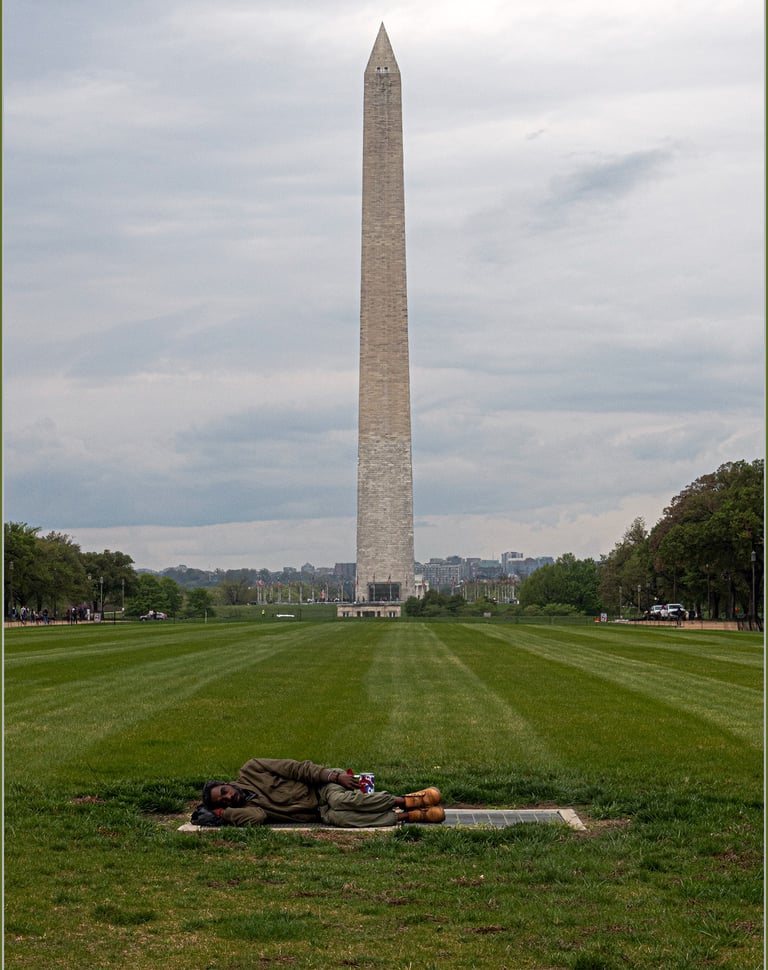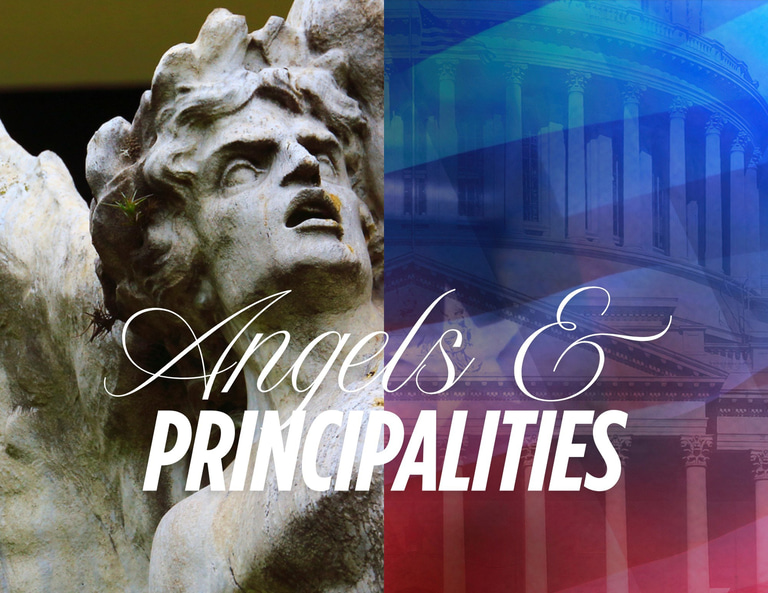Frank DuNN: Conversations at the junction of faith and politics
Resurrection Challenge
Resurrection is not an event to be believed, but a life to be lived. Following Jesus is trusting that the world and the people in it can change, and living with the courage to living accordingly.
Frank Dunn
4/24/20256 min read


There are two passages in the resurrection narratives that I find haunting. One is in Mark. The very last words in the most ancient versions of the text are the very end of chapter 15: “So [the women] went out and fled from the tomb, for terror and amazement had seized them, and they said nothing to anyone, for they were afraid.”
The other is from Luke 24:8-11: “Then they [the women] remembered [Jesus’] words, and returning from the tomb, they told all this to the eleven and to all the rest. Now it was Mary Magdalene, Joanna, Mary the mother of James and the other women with them who told this to the apostles. But these words seemed to them an idle tale and they did not believe them.”
These two passages have a peculiar ring of authenticity. Many features and details of the resurrection stretch credulity, not least because the various accounts are clearly from different traditions and likely from different memory banks. These words, however, describe utterly believable human responses. Incidentally, I’m not a fan of trying to “harmonize” the gospels where they differ. Instead, I prefer to take each story wherever gospel accounts differ and ask what the storyteller is attempting to convey. What is the purpose? What is the point? Why does this particular account say something that the hearer isn’t supposed to miss?
It seems to me that Mark’s gospel is clearly saying that the resurrection was an event that took place completely out of sight of any human being. Whatever it was, it was strange enough to terrify those who encountered the reality. If we were to take that gospel as ending right there with no footnotes, no happy ending, no appearance or conversation with the Risen Lord, we’d have precisely what our current culture in many ways experiences. Just shut your mouth and keep quiet. It’s just not going to do anybody any good to try to explain the impossible. Say nothing to anyone. Mind your own business. And, on the off chance you do believe what you think is going on, make sure you remember to say your prayers and keep them private.
That surely doesn’t describe many Christians today, who are all about proclaiming the factuality of the resurrection. Keeping quiet? Not an option. Instead, force people to practice the religion you practice, regardless of their choice or experience or tradition. The resurrection becomes something like a triumphal vindication of the singularity of Jesus, the ultimate seal of approval of his divinity. Therefore, bow the knee and get with the program.
But that doesn’t describe a lot of Christians either. Rather than turn the gospel into something that is a bludgeoning tool to amass power under the pretext of saving souls, another swath of believers concludes that the resurrection of Jesus signals the guarantee of life after death. Most Easter sermons I’ve heard in my lifetime jump from Jesus’ resurrection to the immortality promised to believers. He is immortal, which must mean that if we believe in him, we are immortal too. And that becomes imagining that life beyond death is simply an extension of the best features of this life, or perhaps an even better life for those who’ve been shortchanged on earth.
All this dodges the import of the story. The event is not one that can ever be dissected in believable or rational terms so that we can easily sign on to it and get the benefits of doing so. I agree with many preachers who’ve said over the years that believing in the resurrection (or any of the other “glorious impossibles” of the gospel) is a matter of trust. I beg to differ, however, with what the trust is trust of. I believe the gospel invites us to trust that the possibilities of what can happen in this world are far beyond what we can see or even imagine. And that’s scary. When confronted with something so far beyond anything we know, we’re either in a horror movie or we’ve got to broaden our vision of what reality is.
Mark never explicitly says so, but the inference we are forced to draw is that eventually something caused the frightened women to talk. My takeaway from that is there come times in my life and yours when the fear of being misunderstood, lampooned, ridiculed, ostracized or shamed is overridden by the courage we embody to say, “there’s more to this than we’re settling for. The world is bigger than we thought. I am more than I thought. So are you." What is said to be stupid or unworkable turns out to be not only possible but non-negotiable. We either change and grow or give up and die.
John Donne, the famous poet and preacher of the 17th century, began one of his Christmas sermons by stating, “Christ’s whole life was a passion.” Likewise, I say, “Christ’s whole life was a resurrection.” The stories we have about Jesus, both canonical and non-canonical, are stories of someone who continually pushed boundaries, entered forbidden territory, did outrageous things, called received wisdom to account, transgressed normality, broke traditions (and observed others), redefined shibboleths, behaved in disapproved ways, formed alliances that threatened authorities, reframed revered symbols, debated the guardians of the status quo.
None of that necessarily means that he was right. But it does mean that, if one takes seriously his command, “Follow me,” we do, or at least try to do, in our own way what he did in all the above. Eating with outcasts and sinners, which seems to have been repeatedly a complaint about Jesus, is not a suggestion that we can ignore if we are going to follow him—a phrase that I take to mean “do as I do, go where I go.”
The Lucan story, “...it seemed to them an idle tale,” is where a whole lot of folks are these days, not only about resurrection but about the entirety of the Christian life. “It won’t work.” “It’s unrealistic.” “You can’t get to first base with...” Or, in response to the idea of doing what Jesus did, like giving out free food to thousands of people: “Wait a minute! That’s socialism!” Yes, this is an idle tale, unless and until we take it and start living it as truth.
The incontrovertible result of the resurrection, whatever it was and however it happened, is that the world has never been the same since. Arguably that can be said of nearly anything, especially anything that invades life, changing forever the way we view and respond to our world. Especially in the sphere of how human beings regard each other, how we approach not only our own lives but our connections with other lives, is dramatically different from the default human approach which overall has historically limited our generosity and charity to our own close ones, families, clans, tribes, races, etc. To my mind, there’s absolutely no way to follow Jesus and not break barriers, take down walls, question the way things are done, treat people not only fairly but kindly and generously. There’s also no way to my knowledge of following Jesus if we’re unwilling to take on leaders of religious and economic establishments that oppress the poor, ignore the helpless, or let formalities prevent us from seeing the depth and urgency of human need. The question is not whether we should do or whether it’s right, but how can we most effectively use our own gifts and abilities to effect greater love and wider justice.
I’m not suggesting that Christianity is the only road to take. I believe that the labels are less important than the commitments they imply. Pre-Christian cultures (e.g., native and aboriginal) and post-Christan cultures (e.g., Moslem) and non-Christian cultures (virtually everything else) have much to teach us. The resurrection is not the creation of an in-group, but the universalizing of the Christ reality. To quote Buddhist nun Pema Chödrön, “everyone who enters your circle has something to teach you.”
Unlike Mark, Luke doesn’t end the story with the idle tale comment. Instead, his vision is that of an expanding transformation that begins in Jerusalem, extends to Judea, Samaria, and “to the ends of the earth.” (Acts 1:8) There’s always new work to be done, new challenges to meet, new threats to address. In the beautiful words of the Passover Haggadah, “In each and every generation they rise up against us to destroy us. And the Holy One, blessed be He, rescues us from their hands.” It never ends, does it? And that, too, is a part of the resurrection reality.
So, there you have it. Fear can paralyze us into keeping the words of liberation lodged in our throats. And the flip dismissals of our witness as just so much fluff and feathers can dissuade us from our commitment to what we know to be the truth, our truth.
Yet the curious thing about true resurrection is that it’s never a proposition to be believed, but a life to be lived. Resurrection is a life that can be lived, not in the sky by and by, but a life unlimited by time’s constraints and thus timeless and therefore eternal, if you want to call it that. I think it is quite likely the same reality that goes by manifold names like Nirvana. It is the Present that, as Marcus Aurelius said, “is the only thing we have, and thus the only thing of which we may be deprived.”
Photo: USA, 2025. by Levon Avdoyan
Michael Shieffelbein responds:
I love your reflection on the resurrection, Frank! The way of Jesus is the way of life in the midst of death: rejecting violence, speaking up for what is right in the midst of fear, living in solidarity with those who are mistreated and marginalized. It's a way of incorporating the Spirit of Jesus as individuals and as communities of faith.
